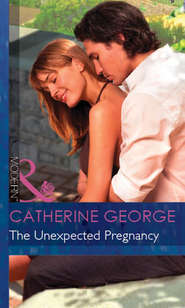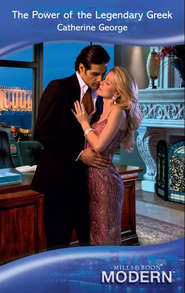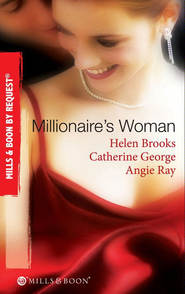По всем вопросам обращайтесь на: info@litportal.ru
(©) 2003-2025.
✖
From Florence With Love: Valtieri's Bride / Lorenzo's Reward / The Secret That Changed Everything
Автор
Год написания книги
2019
Настройки чтения
Размер шрифта
Высота строк
Поля
‘Of course. Swim first, then I teach you.’
And she smiled, a dazzling, pretty smile like the smile of her mother in the photograph, and it nearly broke Lydia’s heart.
He came into the kitchen as she was sitting there with the children, Francesca patiently coaching her.
‘No! Mee dees-pya-che,’ said Francesca, and Lydia repeated it, stretching the vowels.
‘That’s good. Ciao, bambini!’
‘Ciao, Pàpa!’ the children chorused, and he came over and sat down with them.
‘I’m teaching Lydia Italiano,’ Francesca told him, grinning at him.
He smiled back, his eyes indulgent. ‘Mia bella ragazza,’ he said softly, and her smile widened, a soft blush colouring her cheeks.
‘So what do you know?’ he asked Lydia, and she laughed ruefully.
‘Mi dispiace—I thought sorry was a word I ought to master pretty early on, with my track record,’ she said drily, and he chuckled.
‘Anything else?’
‘Grazie mille—I seem to need that a lot, too! And per favore, because it’s rude not to say please. And prego, just in case I ever get the chance to do something that someone thanks me for. And that’s it, so far, but I think it’s the most critical ones.’
He laughed. ‘It’s a good start. Right, children, bedtime. Say goodnight.’
‘Buonanotte, Lydia,’ they chorused, and she smiled at them and said, ‘Buonanotte,’ back.
And then she looked at Francesca, and added, ‘Grazie mille, Francesca,’ her eyes soft, and Francesca smiled back.
‘Prego. We do more tomorrow?’
‘Si.’
She grinned, and then out of the blue she came over to Lydia and kissed her on both cheeks. ‘Goodnight.’
‘Goodnight, Francesca.’
He ushered them away, although Francesca didn’t really need to go to bed this early, but she’d lost sleep the night before and she was always happy to lie in bed and read.
He chivvied them through the bathroom, checked their teeth, redid Antonino’s and then tucked them up. As he bent to kiss Francesca goodnight, she slid her arms round his neck and hugged him. ‘I like Lydia,’ she said. ‘She’s nice.’
‘She is nice,’ he said. ‘Thank you for helping her.’
‘It’s OK. How long is she staying?’
‘I don’t know. A few days, just until she’s better. You go to sleep, now.’
He turned off her top light, leaving the bedside light on so she could read for a while, and went back down to the kitchen.
Lydia was sitting there studying an English-Italian dictionary that Francesca must have lent her, and he poured two glasses of wine and sat down opposite her.
‘She’s a lovely girl.’
‘She is. She’s very like her mother. Kind. Generous.’
Lydia nodded. ‘I’m really sorry you lost her.’
He smiled, but said nothing. What was there to say? Nothing he hadn’t said before.
‘So, the harvest starts tomorrow,’ Lydia said after a moment.
‘Si. You should come down. Carlotta brings lunch for everyone at around twelve-thirty. Come with her, I’ll show you what we do.’
Massimo left before dawn the following morning, and she found Carlotta up to her eyes in the kitchen.
‘How many people are you feeding?’ she asked.
Carlotta’s face crunched up thoughtfully, and she said something in Italian which was meaningless, then held up her outspread hands and flashed them six times. Sixty. Sixty?
‘Wow! That’s a lot of work.’
‘Si. Is lot of work.’
She looked tired at the very thought, and Lydia frowned slightly and began to help without waiting to be asked. They loaded the food into a truck at twelve, and Roberto, Carlotta’s husband, drove them down to the centre of operations.
They followed the route she’d travelled with Massimo the day before, bumping along the gravelled road to a group of buildings. It was a hive of activity, small tractors and pickup trucks in convoy bringing in the grapes, a tractor and trailer with men and women crowded on the back laughing and joking, their spirits high.
Massimo met them there, and helped her down out of the truck with a smile. ‘Come, I’ll show you round,’ he said, and led her to the production line.
Around the tractors laden with baskets of grapes, the air was alive with the hum of bees. Everyone was covered in sticky purple grape juice, the air heavy with sweat and the sweet scent of freshly pressed grapes, and over the sound of excited voices she could hear the noise of the motors powering the pumps and the pressing machines.
‘It’s fascinating,’ she yelled, and he nodded.
‘It is. You can stay, if you like, see what we do with the grapes.’
‘Do you need me underfoot?’ she asked, and his mouth quirked.
‘I’m sure I’ll manage. You ask intelligent questions. I can live with that.’
His words made her oddly happy, and she smiled. ‘Thank you. They seem to be enjoying themselves,’ she added, gesturing to the laughing workers, and he grinned.
‘Why wouldn’t they be? We all love the harvest. And anyway, it’s lunchtime,’ he said pragmatically as the machines fell silent, and she laughed.
‘So it is. I’m starving.’
The lunch was just a cold spread of bread and cheese and ham and tomatoes, much like their impromptu supper in the middle of the first night, and the exhausted and hungry workers fell on it like locusts.
‘Carlotta told me there are about sixty people to feed. Does she do this every day?’











